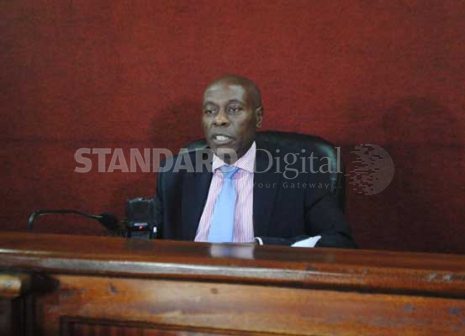×
The Standard e-Paper
Join Thousands Daily

A class of 131 candidates whose KCSE examination results were cancelled in 2015 provided incorrect but identical answers to an English literature question.
The Kenya National Examinations Council (Knec) told the High Court it concluded the students had cheated as they wrote similar answers even though they were wrong.